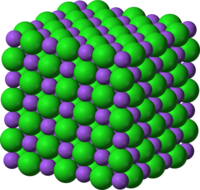
Photo from wikipedia
Gradient flows provide a means for a networked formation system to reach and stabilize at a target configuration. However, the decentralization constraints and the geometry of the state space make… Click to show full abstract
Gradient flows provide a means for a networked formation system to reach and stabilize at a target configuration. However, the decentralization constraints and the geometry of the state space make the appearance of stable but undesired configurations inevitable. The presence of these undesired stable configurations precludes global convergence to the target configuration. In this article, we address the issue by considering a controlled formation system on special orthogonal groups over a directed graph. Agents of the system are tasked with stabilizing from others at target relative attitudes. The nominal dynamics of the agents are gradient flows of certain potential functions. These functions are parameter dependent, pretuned by the controller. To prevent the formation system from being trapped at an undesired configuration, we formulate and address the problem of whether the controller can steer the system from any configuration to any other configuration by retuning, on the fly, the parameters of the potential functions. We show that the answer is affirmative provided that the underlying graph is rooted with a single root node being fully actuated. We formulate the result as a main theorem and provide a complete proof of the result.
Journal Title: IEEE Transactions on Control of Network Systems
Year Published: 2021
Link to full text (if available)
Share on Social Media: Sign Up to like & get
recommendations!